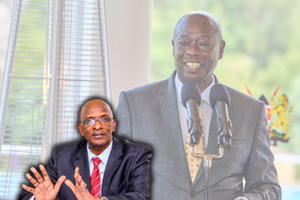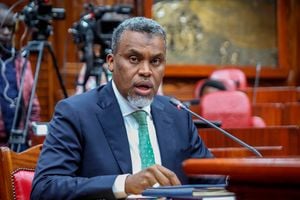Think about women ex-prisoners

An inmate at the Nyeri Women's Prison, King’ong’o with her child at the facility.
What you need to know:
- It’s imperative that those in positions of influence uplift the voices of the marginalised.
- We must confront the biases and prejudices that perpetuate marginalisation within our systems.
This International Women’s Day, themed “Inspire Inclusion”, it’s vital to reflect on how policies and practices aimed at promoting social justice can be inclusive and representative of formerly incarcerated women.
In a world where players from all races and social standing are advocating equality, justice and empowerment, it’s imperative that those in positions of influence uplift the voices of the marginalised and overlooked.
Formerly incarcerated women represent a unique and often silenced demographic within society. They face a myriad challenges upon re-entry — including stigma, limited access to resources and systemic barriers — that hinder their ability to fully reintegrate into society.
Yet their experiences, perspectives and insights are invaluable in shaping policies and practices that address the root causes of injustice and inequality.
Biases and prejudices
To truly inspire inclusion, we must first acknowledge and confront the biases and prejudices that perpetuate marginalisation within our systems.
That means actively listening to the stories and experiences of formerly incarcerated women, acknowledging their expertise and centring their voices in the decision-making process.
It requires dismantling the structural barriers to their full involvement in society, like discriminatory laws and policies that perpetuate cycles of poverty and incarceration.
Experience oppression
Also, promoting social justice requires a commitment to intersectionality — the understanding that individuals experience oppression in varying ways, based on their intersecting identities.
For these women, it means recognising and addressing their unique challenges and the additional barriers imposed on them by factors such as race, socioeconomic status and gender identity.
Inclusion entails offering them opportunities for education, employment and support services. It highlights the significance of enabling them to rebuild their lives and make meaningful contribution to society.
Through programmes like the UFUNUO Training Program, by Clean Start Africa, efforts are being made to facilitate the rehabilitation, reintegration, and re-entry of incarcerated and formerly incarcerated women. Every woman, regardless of her past, has the opportunity to thrive and succeed.
Ms Njoroge is the CEO, Clean Start Africa. [email protected]



